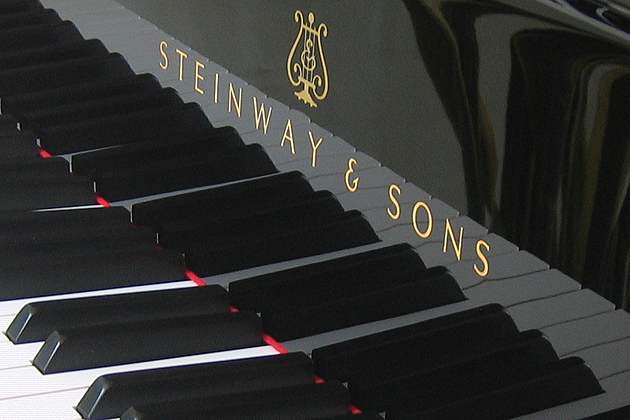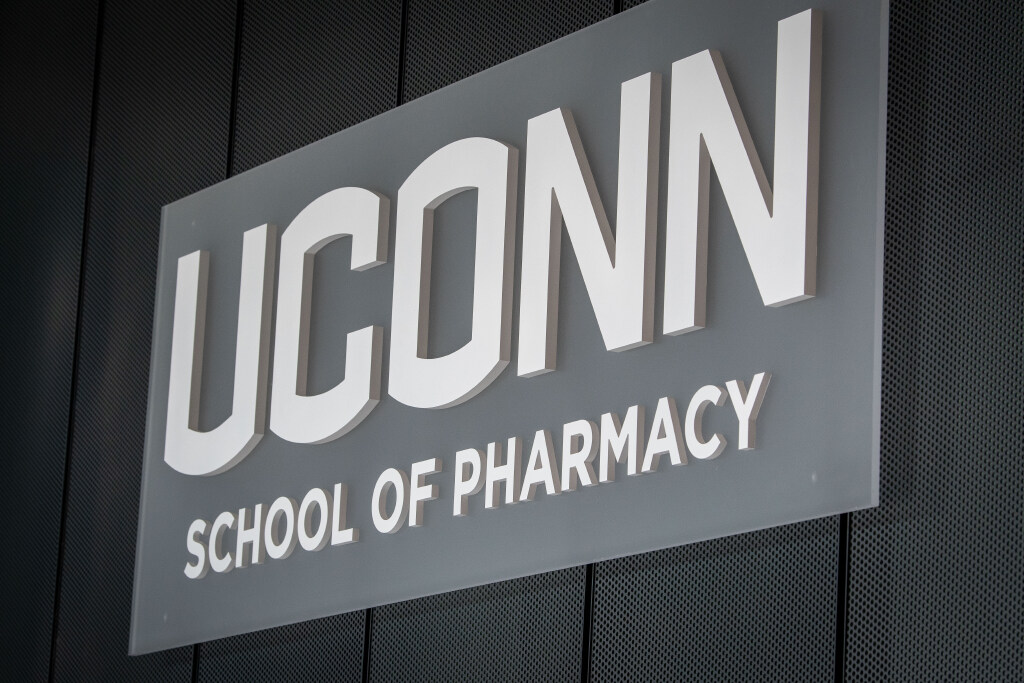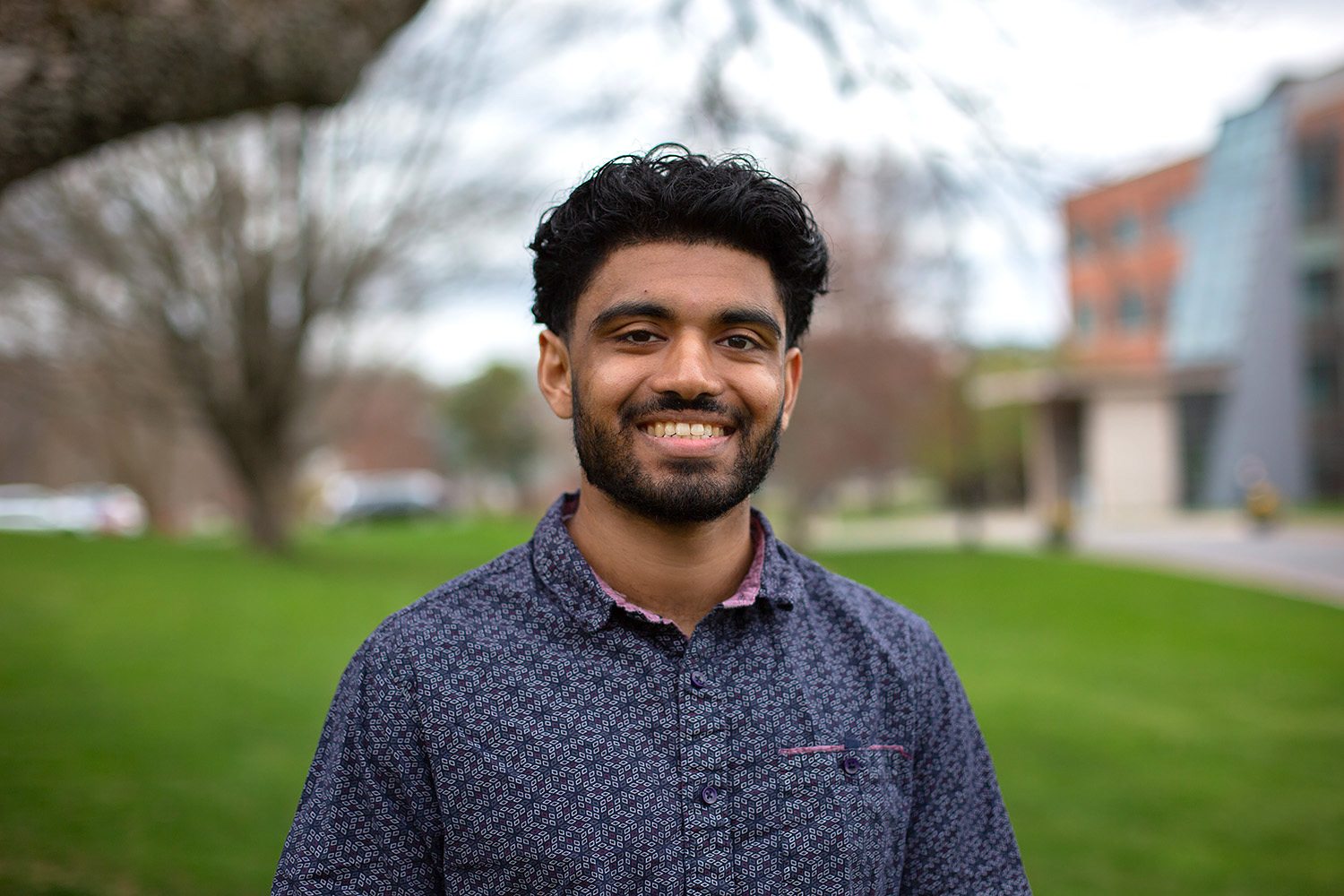With the help of private donations, UConn’s School of Fine Arts hopes to become an all-Steinway School, replacing 90 percent or more of its assorted, aging pianos with Steinways, which have a reputation for excellence around the world.
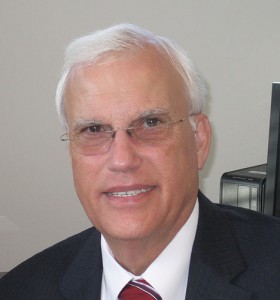
“This is a way of saying that we embrace quality, period,” says David Woods, who recently retired as dean of the School of Fine Arts, and who launched the campaign to become an all-Steinway School. “Steinway pianos are the best. To embrace quality, you have to embrace great instruments,” adds Woods, who plans to continue his All-Steinway campaign as a music professor after a year-long sabbatical.
Currently, the School of Fine Arts has two Steinway pianos in excellent condition, thanks to private giving. The Jorgensen Co-Stars raised over $100,000 to purchase a Steinway for the stage in the Jorgensen Center for the Performing Arts. The Lawrence J. Portell and Natalie D. Portell Foundation helped raise $100,000 toward the purchase of the Steinway piano in the von der Mehden Recital Hall and recently pledged another $100,000 to purchase a Steinway in honor of Dean Woods’ 12-year tenure as dean.
“The Steinway affiliation is a badge of distinction for institutions of higher learning in music,” says Catherine Jarjisian, professor and head of the music department. “More than that, however, it is a guarantee that an institution knows the importance of providing ‘equipment’ capable of teaching students by virtue of its quality and its responsiveness to refinement, finesse, and — certainly — passion. For UConn to be included on the list of All-Steinway schools represents a stalwart commitment to education in the arts, and an enduring one.”
Currently, about 135 conservatories, universities, colleges and schools around the world have received the All-Steinway designation, which is given to an educational institution in which students perform and are taught exclusively on Steinway-designed pianos. The institution must also have a Steinway-approved maintenance program in place to ensure that all the instruments are kept in performance quality condition.
The company claims that more than 95 percent of all pianists performing with major orchestras choose the Steinway piano exclusively. A Steinway piano is handmade, consists of more than 12,000 specific parts, and is assembled by 300 people. The process takes a year, according to the company.
UConn currently owns 87 pianos. According to an inventory conducted by Steinway and Sons, 86% of them have been deemed “fair” or worse. There are 34 pianos over 30 years old. Of those 34 pianos, the average age is 56 years. It also has nine pianos over 70 years old, six pianos over 90 years old, and two 2 pianos over 100 years old, according to the inventory.
The All-Steinway School initiative would replace 84 of these pianos at a cost of approximately $2.5 million, according to Paul Goldberg, director of development for the School of Fine Arts.
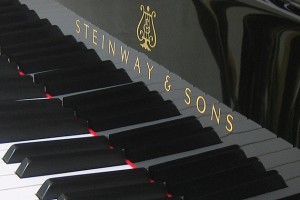
In addition to the three pianos already received by the university, alumna Elizabeth Swallow has pledged $300,000 in a bequest for the All-Steinway initiative and Evelyn Gilman has pledged a Steinway piano valued at $50,000, says Goldberg. “We have reached about 30 percent of our goal.”
An event last winter in New York City was sponsored by the New York chapter of the school’s alumni association and was attended by more than 60 UConn alumni. University Provost Peter Nichols gave a ringing endorsement of UConn’s aspirations to become an All-Steinway School as a way to usher in another 50 years of greatness for the School of Fine Arts and the University in general.
Guests were treated to a performance of Rachmaninov Cello Sonata by faculty members Irma Vallecillo (piano) and Katie Schlaikjer (cello). In addition, James Barron, New York Times columnist and author of “Piano; The Making of a Steinway Concert Grand” gave a talk on his book and signed copies for everyone in attendance.
